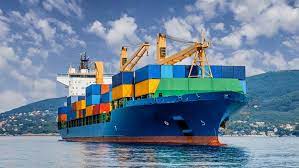
Shipping in India
Shipping plays a crucial role in international trade, and India is no exception. With a coastline of over 7,500 kilometers and numerous ports, India has been a key player in the global shipping industry. In this article, we will delve into the various aspects of shipping in India and explore its significance in international trade.
Role of logistics in international trade in India
International trade heavily relies on logistics, and India has a well-developed logistics infrastructure to support its trade activities. The efficient movement of goods is essential for businesses to thrive in the global marketplace. Let us take a closer look at the role of logistics in international trade in India.
1. Supply Chain Management: Effective supply chain management is crucial for smooth and efficient international trade. In India, various stakeholders, such as manufacturers, exporters, importers, and logistics service providers, work together to ensure the seamless movement of goods. From sourcing raw materials to delivering finished products, supply chain management plays a pivotal role in international trade.
2. Transportation: The transportation of goods is a key component of logistics in international trade. In India, multiple modes of transportation are used, including road, rail, air, and sea. Each mode has its advantages and caters to different types of cargo. However, the shipping industry holds particular importance due to India's extensive coastline and strategic location.
3. Warehousing and Storage: Warehousing and storage facilities are critical for storing goods during transit. In India, there are various warehouses strategically located near ports and manufacturing hubs. These warehouses facilitate the consolidation, deconsolidation, and storage of goods, ensuring their timely availability for international trade.
4. Customs Clearance: Clearing customs is an essential aspect of international trade and logistics. India has implemented several measures to streamline the customs clearance process and reduce paperwork. The introduction of electronic systems, such as the Indian Customs Electronic Data Interchange System (ICES), has significantly expedited the process, making it more efficient and transparent.
Challenges in the Indian shipping industry
While the Indian shipping industry plays a crucial role in international trade, it also faces various challenges that need to be addressed for its smooth functioning. Let's discuss some of the significant challenges faced by the Indian shipping industry.
1. Infrastructure: Despite having a vast coastline, India's port infrastructure needs further development to meet the growing demands of international trade. Many Indian ports face challenges such as inadequate berths, outdated technology, and limited capacity. Investments in port infrastructure are crucial to enhancing efficiency and promoting international trade.
2. Regulatory Framework: The Indian shipping industry operates within a complex regulatory framework. Multiple agencies and departments are involved in regulating and overseeing the industry, leading to bureaucratic hurdles and delays. Streamlining the regulatory processes and creating a single-window system could significantly improve the ease of doing business in the shipping sector.
3. Manpower: The availability of skilled manpower is crucial for the growth of the shipping industry. India needs to invest in training programs and skill development initiatives to bridge the skill gap in the sector. Additionally, attracting and retaining talent in the shipping industry needs to be prioritized to ensure its sustainability and growth.
4. Technological Advancements: Embracing technology is vital for the growth and development of the Indian shipping industry. Automation, digitization, and the use of advanced analytics can improve operational efficiency, reduce costs, and enhance the overall competitiveness of the industry. Encouraging innovation and technological advancements should be a priority for the Indian shipping sector.
5. Sustainability: The shipping industry is under increasing pressure to adopt sustainable practices and reduce its environmental impact. India needs to prioritize sustainable initiatives, such as the use of cleaner fuels, reducing emissions, and implementing eco-friendly practices. Adhering to international standards and regulations related to environmental sustainability will help India to position itself as a responsible player in the global shipping industry.
In conclusion, shipping and logistics are integral to international trade in India. From facilitating the movement of goods to managing supply chains, the shipping industry plays a vital role in ensuring the success of trade activities. While there are challenges to overcome, addressing them through investments in infrastructure, regulatory reforms, skill development, technological advancements, and sustainable practices will foster the growth of the Indian shipping industry and strengthen India's position in the global market.

























